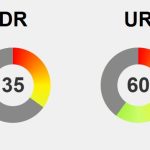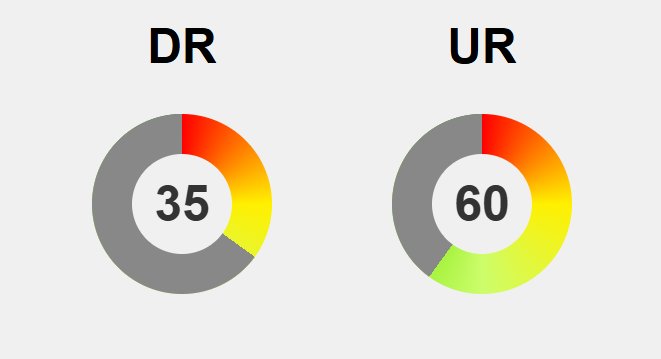Beneath Cancer’s nurturing exterior lies a delicate and complex emotional landscape shaped by deep-seated wounds and fears of abandonment. Their intuitive and empathetic nature enables them to connect profoundly with others, yet this sensitivity also exposes vulnerabilities they often hide behind their caring facade. How do these internal scars influence their reactions to rejection or criticism? Their emotional storms—triggered by past traumas—can seem disproportionate, leading them to retreat into shells for safety. Supporting Cancer requires patience, gentle reassurance, and understanding, as their vulnerabilities are not signs of fragility but sources of profound strength when nurtured correctly. What strategies foster resilience from within their internal fragility? Routine self-care practices, a supportive environment, and compassionate relationships help transform their hidden wounds into resilience. By recognizing and honoring their internal scars, we deepen trust, enabling Cancer to harness their true caring power and navigate life’s emotional tides with grace.
Unveiling the Heart of Cancer’s Emotional World
Cancer individuals are often seen as the nurturing souls of the zodiac, and for good reason. Their intuitive nature and deep empathy enable them to connect with others on a profound level, often sensing feelings and needs before words are spoken. This caring exterior acts as a shield, helping them create safe, comforting spaces for loved ones and themselves. Yet beneath this gentle surface lies a more complex emotional world—one filled with vulnerabilities they tend to keep hidden. Recognizing these internal struggles is key to truly understanding Cancer, as their outward kindness can mask feelings of insecurity, hurt, or fear of rejection.
Their nurturing qualities stem from a heightened emotional awareness. Cancers are remarkably empathetic, often picking up on subtle emotional undercurrents others miss. This makes them attentive friends and partners who genuinely care about the well-being of those around them. However, this sensitivity also leaves them vulnerable to emotional wounds—especially if they feel misunderstood, unappreciated, or betrayed. Their deep attachment to family, tradition, and home intensifies their need for stability, which can be easily shaken when conflict or rejection occur. It’s this delicate balance between their caring nature and internal fragility that shapes much of their emotional landscape.
While they appear resilient, Cancers often carry unspoken wounds from childhood, family conflicts, or betrayals that linger beneath the surface. These scars influence how they respond to criticism or rejection, often triggering emotional storms that seem disproportionate to the situation. Because they process feelings internally, it can be difficult for others to see the depth of their struggles. Their internal world may be a whirlwind of mood swings, self-doubt, and fears of abandonment—making understanding their vulnerabilities essential for genuine connection. Approaching them with patience and compassion allows us to see beyond their nurturing mask and get closer to their true emotional core.
Recognizing that Cancer’s outward kindness masks a fragile interior helps us approach their world with empathy. Their acts of caring are often driven by a desire to protect themselves as much as they care for others. When we understand their hidden wounds—these quiet fears and scars—we foster relationships rooted in trust. Supporting Cancer means creating a space where they feel safe enough to express their vulnerabilities, allowing their resilience to emerge naturally. Seeing both their strength and softness enables us to build more genuine, lasting bonds.
Ultimately, understanding Cancer’s emotional landscape requires acknowledging both their resilience and their vulnerabilities. Their nurturing exterior is a testament to their deep empathy, but it also shields tender wounds. Approaching them with kindness and patience helps them feel secure enough to open up and heal. When we do, we unlock the full depth of their caring nature—delicate yet strong, fragile yet resilient. This balance makes Cancer not only deeply caring but also profoundly resilient, capable of navigating life’s emotional tides with grace.
Diving Deep into Cancer’s Inner Turmoil
Cancer’s emotional depths form the core of who they are, shaping how they experience and respond to the world around them. They feel things intensely, often internalizing their emotions rather than expressing them outwardly. This internal landscape can resemble a whirlwind of mood swings, lingering doubts, and old wounds from past experiences. Their heightened sensitivity makes even the smallest criticisms or perceived rejection feel like significant blows, leaving scars that influence their trust and self-esteem. Many of these wounds originate in childhood or family dynamics, creating a persistent fear of abandonment that follows them into adulthood.
Despite their caring nature, Cancers often wrestle with vulnerabilities they rarely show. They crave security and stability, which makes them acutely aware of any signs of disloyalty or indifference from others. When their sense of safety is threatened, their internal world can erupt into anxiety, sadness, or frustration. These reactions stem from deep-seated fears and unresolved wounds that they might not even fully recognize. Because they process feelings internally, their struggles are often hidden, making it difficult for others to see just how much they carry beneath the surface.
A key part of Cancer’s emotional makeup is their protective shell, which they’ve built over time to shield their vulnerabilities. This shell helps them maintain control and avoid being overwhelmed by intense feelings. To others, their warmth and caring may seem unwavering, but beneath that exterior lies a delicate layer of defenses. When trust is broken or they feel unappreciated, this shell can tighten, making it even harder for others to reach their true emotional core. It’s a survival mechanism, born from their need for safety in a world that can sometimes feel unpredictable.
Their internal struggles often manifest through sudden mood swings or emotional upheavals. These episodes might seem disproportionate to the triggering event but are rooted in deeper fears or unresolved wounds. Because of their sensitivity, Cancers tend to internalize these feelings, which can lead to moments of despair or overwhelm. During such times, retreat into their shells becomes a natural response—space and patience from others are vital for them to regain their equilibrium.
Recognizing that these vulnerabilities are part of their internal landscape helps us approach Cancers with empathy. Their reactions aren’t signs of fragility but reflections of their deep emotional sensitivity. Validating their feelings, even when they seem exaggerated, reassures them that their inner world is understood. This validation can help calm their storms and create a safe space for them to process and heal. When supported in this way, their internal wounds can begin to mend, revealing the resilience that lies beneath their fragile exterior.
Their internal wounds—often from childhood, betrayals, or moments of rejection—are like scars that shape their emotional responses. They tend to hide these scars out of fear of vulnerability, which makes their struggles less visible but no less real. Approaching them with patience and kindness encourages trust and allows their wounds to surface gradually. This process of gentle understanding helps transform vulnerability into a source of strength, empowering them to navigate challenges more confidently.
Seeing the depth of Cancer’s internal world reveals a complex balance between resilience and vulnerability. Their sensitivity isn’t a flaw but a profound gift that enables deep connection and empathy. When we understand their wounds, we can better support their journey toward healing. By respecting their boundaries and offering steady compassion, we help turn their internal fragility into lasting strength, allowing their caring nature to flourish beyond the scars of past wounds.
Calming the Storms: Navigating Cancer’s Emotional Ups and Downs
Cancer’s emotional storms can catch them off guard, often feeling far more intense than their outward calm suggests. Because they experience feelings deeply, even minor setbacks or perceived slights can spiral into overwhelming waves of emotion. When overwhelmed, they tend to retreat inward, seeking refuge in their shells rather than confronting the storm head-on. This isn’t a sign of weakness but a protective instinct designed to shield them from further pain. Their friends and loved ones play a vital role in helping them feel supported during these vulnerable moments, offering patience and gentle reassurance.
During these emotional upheavals, Cancers often find it difficult to pinpoint exactly what’s fueling their distress. Their internal landscape is complex, with feelings that can seem disproportionate to the actual cause. Past wounds—like fears of rejection or abandonment—resurface, triggered by seemingly small comments or actions. These reactions are rooted in deep-seated fears that may not always be fully conscious. Because they process feelings internally, others might not see the inner chaos they’re experiencing, which can make supporting them more challenging but also more crucial.
Supporting a Cancer through their storms requires patience and empathy. Listening without rushing to fix or dismiss their feelings creates a safe space where vulnerability can be expressed freely. Often, simply being present and showing genuine compassion helps lessen their sense of isolation. Their mood swings aren’t signs of inconsistency but reflections of their heightened sensitivity. Giving them the time and space they need to work through their emotions allows them to regain their footing. Pushing for immediate resolution can backfire, making them feel more exposed and overwhelmed.
When overwhelmed, Cancers tend to withdraw and silence themselves, retreating into their shells to gather strength. While this silence may seem distant, it’s their way of regrouping, not disconnecting. Forcing them to open up during these moments can intensify their feelings of vulnerability. Instead, offering reassurance and patience encourages them to emerge when they’re ready. Recognizing that these emotional storms are part of their inner world helps us respond with kindness, affirming that their feelings are valid and understood.
Empathy is key to helping Cancer navigate these intense episodes. Validating their feelings, even when they seem exaggerated, reassures them that their inner world is safe and recognized. This validation acts as a calming balm, helping to soothe the turbulence and create a foundation for healing. Supporting them with gentle routines like journaling, meditation, or physical activity provides healthy outlets for their emotions. Over time, these practices build resilience, reducing the frequency and severity of future storms. When supported with understanding and patience, their vulnerability transforms into a wellspring of strength, enabling them to face emotional challenges more gracefully.
For those seeking additional resources, exploring articles about managing emotional health can be incredibly beneficial. A helpful starting point is understanding how to support Cancer individuals through their emotional storms, which can be found in this insightful guide on Supporting Cancer Emotional Health. Embracing these strategies can foster greater compassion and patience, ultimately helping them navigate their inner worlds more effectively.
Healing Pathways: Supporting Cancer’s Emotional Recovery
Creating a safe and nurturing environment is fundamental for helping Cancer heal their emotional wounds. When they feel genuinely understood and accepted, they open up more easily. Patience, gentle reassurance, and attentive listening without rushing to fix their feelings help build trust and encourage honest expression. Respecting their need for solitude when overwhelmed allows them to process at their own pace, making it easier for them to share their true emotions over time. This foundation of safety and consistency is what enables their vulnerability to surface naturally and begin healing.
Supporting their emotional resilience also involves encouraging routines that foster self-care. Activities like journaling, meditation, or gentle exercise serve as healthy outlets for processing feelings. These habits create stability amid emotional turbulence, giving them a sense of control and reducing the intensity of future storms. Over time, such routines strengthen their inner core, helping them face challenges with more confidence. When they actively participate in their healing, they build resilience that transforms their internal fragility into powerful growth.
A strong support network plays a vital role in their recovery. Trusted friends, family members, or mental health professionals who listen with compassion and without judgment provide a sense of security. Regular check-ins and open communication remind them they are not alone, easing feelings of isolation. Connecting with others who understand their sensitivity deepens their sense of safety and reinforces their healing process. The knowledge that they have a steady, caring presence makes it easier for Cancer to confront and work through their vulnerabilities.
Patience and empathy are crucial in guiding Cancer through their healing journey. Recognizing that their reactions stem from deep-seated fears and past wounds helps us respond with kindness rather than frustration. Validating their feelings, even when they seem exaggerated, reassures them that their emotional world is recognized and respected. This validation calms their storms and creates a safe space for reflection and recovery. When supported in this gentle manner, their vulnerability becomes a source of strength, enabling them to process pain without feeling overwhelmed.
Finally, empowering Cancer with healthy coping strategies encourages long-term resilience. Introducing practices like mindfulness, creative expression, or physical activity provides them with tools to manage stress constructively. These outlets not only alleviate immediate distress but also foster ongoing stability, making future emotional upheavals less overwhelming. Supporting their growth in this way turns their internal fragility into a wellspring of strength, allowing them to navigate life’s challenges with grace and confidence. By approaching their healing with patience and compassion, we help transform their vulnerabilities into profound resilience.
Final Insights: Embracing the Hidden Vulnerabilities of Cancer
Understanding the hidden vulnerabilities of Cancer individuals uncovers a side of them that often goes unnoticed. Beneath their nurturing and caring exterior lies a delicate internal world shaped by past wounds, fears, and insecurities. Recognizing these scars allows us to see beyond their surface kindness and appreciate the full complexity of their emotional landscape. When we understand that their acts of compassion often stem from a deep-seated need for security, it becomes easier to approach them with genuine empathy and patience.
Their fears of rejection and abandonment are at the core of many internal struggles. These fears are rooted in childhood experiences and family dynamics that leave lasting impressions. When they sense any threat to their sense of safety, their internal world can erupt into mood swings, anxiety, or sadness. This fragility doesn’t mean they are weak; it highlights the profound sensitivity that fuels their caring nature. Supporting this sensitivity with kindness and understanding allows their internal wounds to surface gradually, fostering trust and healing over time.
Their emotional storms often arrive unexpectedly, fueled by small triggers or lingering doubts from the past. These moments can be intense, yet they also present opportunities for deeper connection. Listening without judgment and affirming their feelings reassures them that their inner world is recognized and safe. Compassionate support during these storms helps them feel less alone and more capable of navigating their internal chaos. When supported properly, their vulnerability transforms into resilience, strengthening their capacity to face future challenges.
Creating a space of safety and patience is key to their healing process. When they feel genuinely accepted and understood, they are more willing to open up and explore their feelings. Consistency and gentle reassurance help them trust others enough to share their true selves. This environment allows their wounds to heal naturally, turning vulnerabilities into sources of strength. It’s through this process that they develop a deeper confidence in their ability to cope, gradually turning internal fragility into resilience.
Supporting Cancer’s emotional growth also involves empowering them with healthy coping strategies. Routine practices like journaling, meditation, or creative expression serve as outlets for processing feelings and reducing overwhelm. As they develop these habits, they build a sturdy inner foundation that helps lessen the frequency and intensity of emotional storms. Over time, this resilience becomes a natural part of their emotional toolkit, enabling them to face life’s ups and downs with more stability and grace.
Recognizing and respecting their internal wounds transforms how we relate to them. It shifts our perspective from viewing vulnerability as weakness to seeing it as a testament to their deep empathy and strength. When we approach Cancer with patience and kindness, we create a trusting space where healing can flourish. Their quiet fears, once hidden, can become the seeds of profound resilience, allowing their caring nature to shine more authentically and powerfully.
By embracing their vulnerabilities as integral to their true selves, we foster relationships rooted in trust and compassion. This understanding not only helps them heal but also reveals the remarkable resilience that lies beneath their gentle exterior. Supporting them in this way turns fragility into a wellspring of strength, enabling Cancer individuals to navigate life’s emotional currents with confidence. In doing so, we help them realize that their deepest vulnerabilities are also their greatest sources of authentic power and connection.





